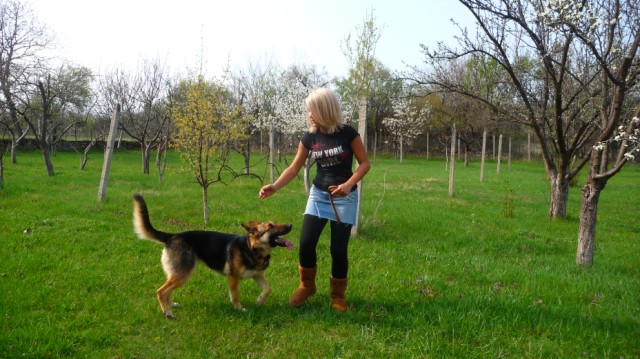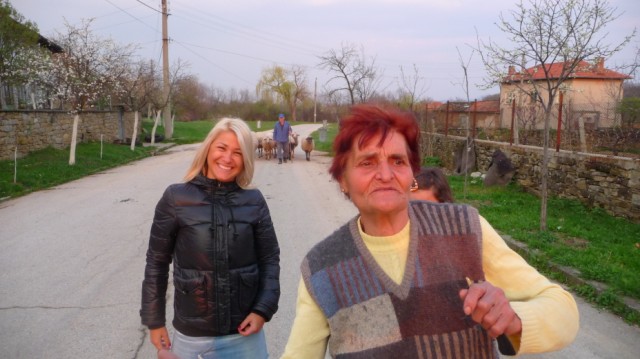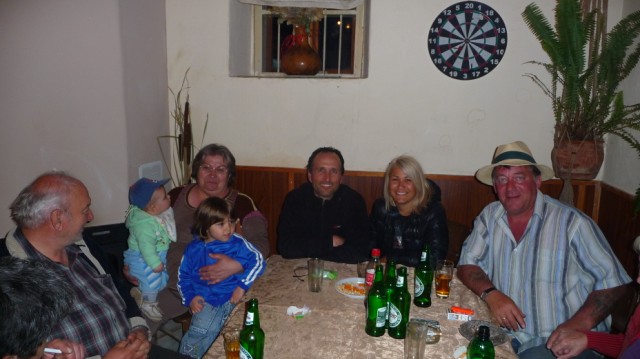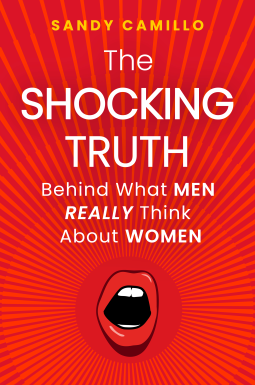While I was traveling in Eastern Europe, my high-school friend, Sarah Spiridonov, made me an offer I couldn't refuse. I hadn't talked with Sarah since we were 18 years old, but thanks to Facebook, we reconnected. She was married to a Bulgarian and they had two boys. To help me with my book, she generously proposed that I stay a couple of weeks in her family's summer home in Turkincha, a tiny village about 20 kilometers (12.5 miles) from Veliko Tarnovo. I was extremely grateful for the opportunity to take a closer look at a rural Bulgarian setting. The experience ended up surprising me in numerous ways.
The village of Turkincha
To get there, I revisited Ruse, Bulgaria's biggest city on the Danube. In 2009, it still was the only bridge between Bulgaria and Romania. The train rumbled across the mighty Danube and kept going to Veliko Tarnovo. Two friendly brothers named Vlado and Gosho, who were Sarah's Bulgarian relatives, picked me up. They took me to a superstore, where I loaded up on food to help me survive for a couple of weeks. I wouldn't have a car and there was no bus to the village. Turkincha had only 20 houses, several of which are empty most of the year. There were far more goats than people.
I'm not sure if it was a Bulgarian tradition, but the Turkincha locals told me that they leave beer bottles by the graves "in case the dead get thirsty."
Sarah told me to meet her trusted neighbor, Baba Bobka (Grandma Bobka). I knocked on Bobka’s door and gave her ground coffee and several big bars of chocolate (knowing that she has a weakness for them). Bobka was a tiny 65-year-old woman with the vitality of a 20-year-old. She smiles freely and has the confidence of a matriarch. When five of her relatives (including her husband, Ivan Dyado) sat down for lunch, Bobka sat at the head of the table.
Bobka served us a creamy vegetable soup, lamb, mashed potatoes, and a pie soufflé made with eggs and ham. The only person who could speak English was Maya Pavlova, Bobka’s pretty 28-year-old granddaughter. Maya lived in Ruse and helped organize boat tours down the Danube. Even though Turkincha looked like a ghost town, people were watching you. The proof that the villagers were observing was when Bobka asked me, “Who was that blond girl you were with today?”
The next afternoon, I met with that blond girl again. Elly Roupcheva wore a tight black shirt that said "New York," and a denim miniskirt—not the traditional farmer's daughter outfit.
After chatting outside for two hours, Elly and I saw a farmer with his flock of sheep grazing in front of Sarah’s house.
Elly took photos of me trying to mount the farmer’s donkey and the farmer laughing at my incompetence.
While we were goofing off, a fit grandmother named Stefani was walking by with her eight-year-old granddaughter. Elly knew them and the four of us walked to Stefani's house.
Elly translated as Stefani shared her thoughts. Stefani grew up in Turkincha, but then left it when she was 20. In 2001, she returned to live out her last final years in the home of her birth. While Stefani gave me a tour of her flower and vegetable garden, she lamented that most Bulgarians had left the villages. She said there are over 200 empty villages in Bulgaria.
Stefani also said that Bulgaria has more corruption than during the communist time. It doesn't help that in the government fined a Bulgarian periodical €14,000 ($20,000) for publishing a reader's letter that accused a politician of corruption. Nor does it help that top police officials drive around in confiscated sports cars that they've adopted into the police fleet.
Although Stefani was friendly, she complained about Bulgaria. When Gallup asked people to rate their life on a one to 10 scale, Bulgarian and Macedonians averaged 4.2—the lowest in Europe. Serbia and Bosnia were next in line. Paola, a Croatian who worked on an eco-farm in Bulgaria, told me, "Older people in Bulgaria are really nice, but a bit annoying. Lots of them complained about everything—they don't have work, they don't have money, the government is fucked up. They complain about the dark, instead of turning a light on. You just can't escape the Balkan complaints."
Stefani had mixed feelings about the Brits who have moved into Turkincha. On the one hand, she was very happy that they were here because they've helped resurrect the dying village. They've renovated their houses and helped the economy.
On the other hand, she didn't like that the Brits have made little effort to learn Bulgarian. Bulgarians would like to talk with them and be closer friends, but the Brits hang out with themselves or expect the Bulgarians to speak English. She also didn't like how Brits would have loud parties and throw trash on the street. "They wouldn't do that in England," she said.
She suspects that Bulgaria has gotten the lower-class Brits. She believed that the wealthiest, most educated, and well-behaved Brits wouldn't move to Turkincha.
Meeting the Brits in Turkincha
After hearing so much about these Brits, I had to meet them. Stefani said that we could find them at the village store, which converts into a pub at night. Elly and I walked there and, sure enough, the pub had about five Brits around a table drinking Bulgarian beer. The Brits were in their 50s and 60s. They told me that they wanted to escape the rat race and the dismal British weather.
I sat next to Tony, a stately, plump Englishman in his 50s who had big blue eyes and a baritone voice (see photo above, he's on the far right). He had been living in Turkincha for three years. Later, he would invite me to his home, which was tastefully renovated. He was happy in this hidden Bulgarian village. I asked him what we can learn from Bulgarians. He said, "To avoid debt. The financial crisis didn't hurt Bulgarians as bad as it could have because most Bulgarians have relatively little debt."
Brett, another middle-aged Turkincha immigrant, added, "Bulgarians are more family-oriented than the British. Children are included in most events, whereas in England they are often put in a separate place."
I asked him, "How much Bulgarian do you speak?"
"Very little," he admitted. "You can get by with knowing just a few words."
"Have you learned any useful phrases?"
"Yes. Oshte bira, molya."
"What does that mean?"
"Another beer, please."
This is an excerpt of The Hidden Europe: What Eastern Europeans Can Teach Us.
















